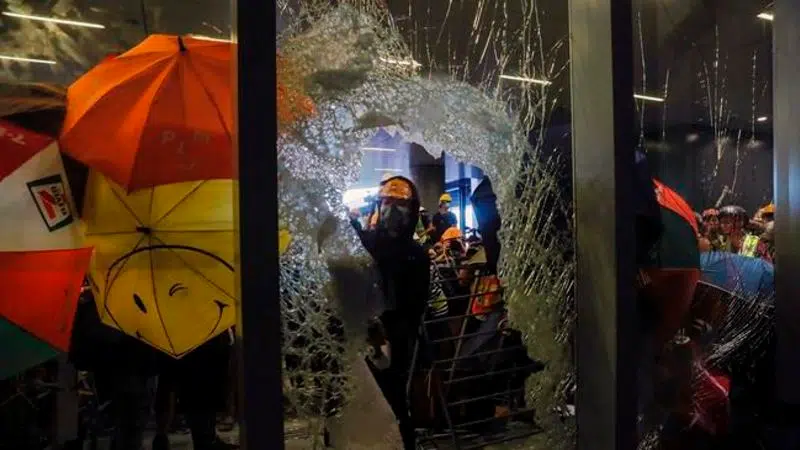
Hong Kong protesters: Desperation led to legislature attack
HONG KONG — It was almost noon on Monday when hundreds of protesters outside Hong Kong’s legislature voted to break in.
Watching from the side, one protester disagreed. They were too few, 19-year-old Daisy Chan worried, and the police presence was heavy.
As hours passed, thousands more trickled into the plaza and a nearby roundabout. The police retreated into the building. Angry protesters shattered windows with carts, sledgehammers and metal barricades.
Chan thought of three protesters who had died and of the Hong Kong leader’s refusal to meet the activists. Though she didn’t want to break in, she believed her role was to support the others.
